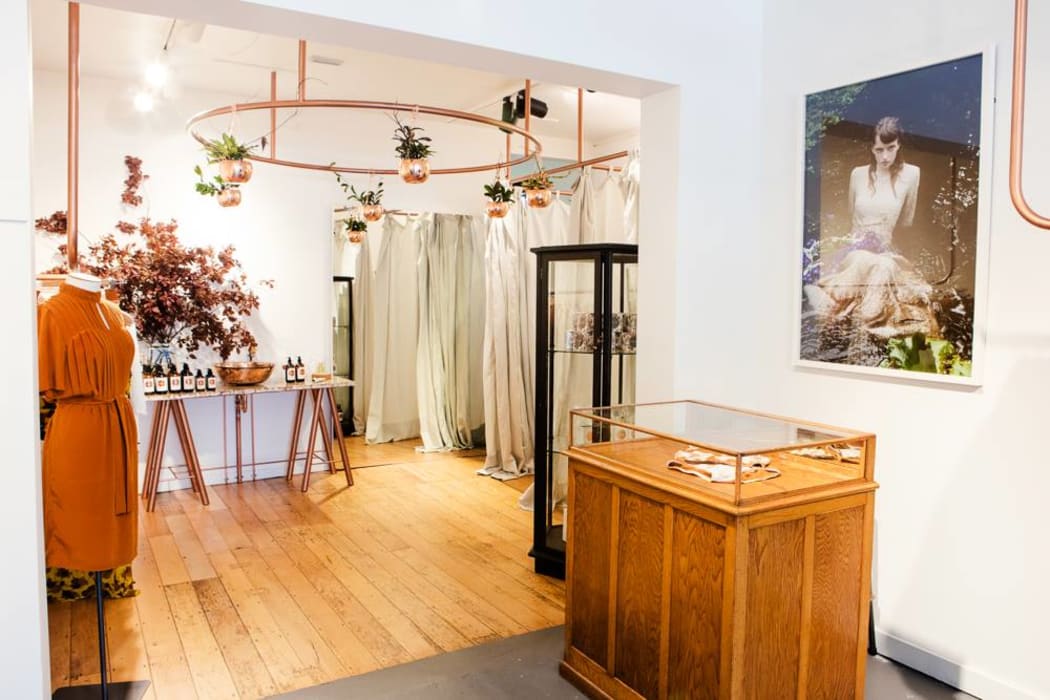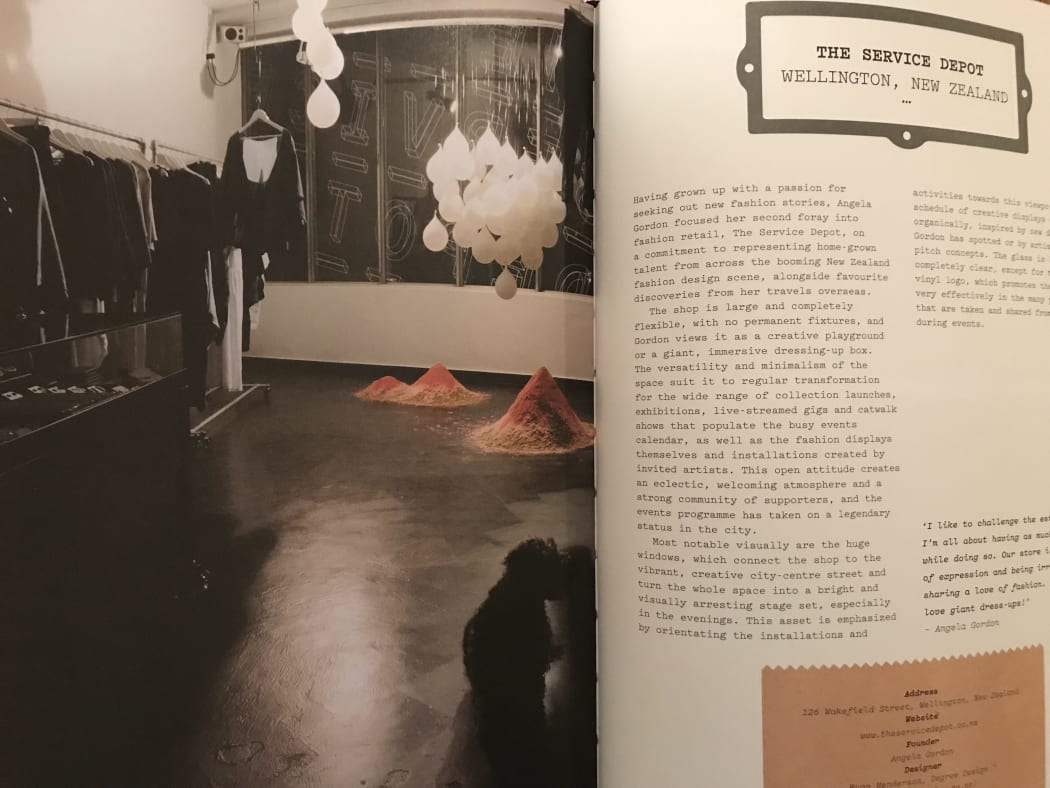Surviving in the retail industry is tough, and today it’s a battle for stores to keep their cash registers ticking over.

Big brands dominate fashion retail Photo: Creative Commons
Subscribe free to My Heels Are Killing Me. On iPhones: Apple podcasts, RadioPublic or Spotify. On Android phones: RadioPublic or Stitcher.
Last year saw the closure of almost 2000 fashion-led retail stores in the US with big names including J Crew, Guess, JC Penney, American Apparel, and Macy’s closing down many of their owner-operated stores.
It doesn’t bode well for the future of brick-and-mortar retail and New Zealand hasn’t been immune to the shifting mood.
Topshop closed its doors in September last year, with its Wellington store only just surpassing the one-year mark in the city’s busy business district.
Kiwi designer Andrea Moore shut up shop went into liquidation after a solid 20 years in the business.
While industry insiders remain tight-lipped about the brand's demise, it’s hard to ignore.
And footwear label Minnie Cooper – a brand known for is classic-style, quality handcrafted leather shoes – also closed its last store early this year.

Ingrid Starnes retail store in Ponsonby Photo: Supplied.
The rapid rise of e-commerce is partly to blame for the changes in shopping habits.
But fingers also point to Millennials who opt for experiences and travel over material purchases.
Online shopping is here to stay and it has made life easier for consumers who can now purchase products from anywhere in the world.
But the downside for retailers is an increasingly competitive space where brick-and-mortar stores need to be more innovative and conscious of strategies to keep customers walking through their doors with purchases in hand.
So what do people actually want, and are physical stores still relevant?

Simon Pound, Co-founder of Ingrid Starnes. Photo: Supplied
Simon Pound, is the co-founder and managing director for womenswear label, Ingrid Starnes, and says their brick and mortar stores go hand-in-hand with the e-commerce side of the business.
Each season the store receives a makeover and the same change is reflected online, Pound tells me from the brand’s Ponsonby store.
“It’s more for us to keep things fresh and to match the season's clothes."
Pound wouldn’t comment on the closure of fashion retailers in New Zealand but says Ingrid Starnes is a very different business with unique offerings.
The label has a custom service and its own line of perfume and luxury toiletries.
The Ingrid Starnes Ponsonby store has been an important base for customers who want to experience the brand through a full collection and shop fit-out, Pound says, and helps to fill in the Ingrid Starnes story.
The makers of the sophisticated womenswear label travel regularly and feel the importance of keeping an eye on what’s happening on the international retail scene.
Customers are also doing the same and that makes for a very competitive market, Pound says.
“You’re not just in your own home market anymore because people are following the best of the international labels on Instagram [along with] the best of your contemporaries.”

The Ingrid Starnes label focuses on sophisticated womenswear Photo: Ingrid Starnes
“We are living in a very global environment and you have to be doing what you do as well as you can to an international standard.”
Over the years, Ingrid Starnes has seen a definitive shift in consumer habits, he says.
“When we started, I think people went shopping a lot more by physically going to a shopping district, so if you had a big occasion coming up in your life you might go to Ponsonby and hit the streets and try and find that dress that you wanted.”
Today, he says people are constantly shopping and they can be doing it anywhere at any time and they might see something on social media first, before heading to the online store. From there, customers either go to the physical store or think about it and buy it later. Some customers opt to wait for sales in the hope their sizes and styles are still left and buy the product then.
Pound sees the Ponsonby Ingrid Starnes location – one of the label's two stores in Auckland – as an important retail home and a place for people to meet the designer and the team behind Ingrid Starnes.
But the location also houses the online stock where E-commerce purchases are sent from.
“They really work together,” he says.
A recently published book, The Creative Shopkeeper showcases the most unique retail concepts around the world.
Released by Hudson and Thames, it includes one New Zealand store – The Service Depot.

Wellington boutique The Service Depot in The Creative Shopkeeper Photo: The Creative Shopkeeper
Run by Angela Gordon, the Wellington boutique has always offered a unique range of designers including Otsu, Nom D, Miss Crabb, Jimmy D, Lela Jacobs and US label 69 Denim.
The international labels have quality design and also a non-gender, non-demographic take on fashion, Gordon says.
“You know every season that their collection[s] will just be really strong.”
The Service Depot opened eight years ago and Gordon hasn’t seen any sign of their brick-and-mortar retail slowing down.
The store recently relocated to a part of Wellington’s inner city that has developed into a hub of top local labels and unique offerings, including Harman Grubisa and Deadly Ponies.
But it was in their previous location, with Karen Walker as their neighbour, that The Service Depot was featured in The Creative Shopkeeper.
It was the way the boutique used its windows that caught the attention of the author Lucy Johnson, who Gordon describes as "an interesting cultural writer".
The store was conceived as a space that could easily be reconfigured, much like an art gallery, and held regular events, installations, runway shows and live-to-air music.
Find out more in the podcast episode which also includes insights from the owner of lifestyle store Precinct 35 and online accessories store Mooma.

